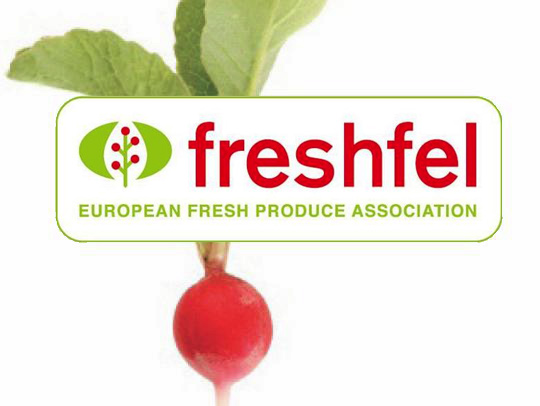Freshfel Europe Kick-Starts Collective Pan-European Environmental Footprint Initiative
February 19, 2021 | 3 min to read

Freshfel Europe reviewed the latest state of play of environmental footprint initiatives in the fresh produce industry with its members and decided to move forward towards a more collective approach for the sector. While the fresh produce sector’s sustainability journey began many years ago, there is still a lack of comparable data used in environmental footprints, which prevents consistency and accountability of the sector in responding to evolving legislative and customer requirements. Such an initiative will allow the supply chain to have its sustainability efforts better recognized in standards and in the Farm to Fork Strategy debate based on agreed Products Environmental Footprint Category Rules (PFEFCR).
Leading representatives of European production (Belgium, France, Italy, Lithuania, the Netherlands and Spain) as well as key traders and retailers from the Freshfel Europe membership met on 18 February in an interactive session to kick-start discussions on the next steps for the fresh produce supply chain on environmental footprint initiatives to respond to increasing demand for comparable data and a harmonized methodology to secure operators’ accountability regarding product environmental impact. Providing a more collaborative and collective response to this challenge is a must from a business perspective. It is also consistent with the European Commission’s European Green Deal priorities, where both the Farm to Fork Strategy and new Circular Economy Action Plan call for increased sustainability accountability to enable consumers to make sustainable food choices and reduce the risk of ‘green washing’. This entails the need for reliable, comparable and verifiable data.
Freshfel Europe General Delegate Philippe Binard commented on the success of the meeting stating, “Freshfel Europe has an important role to play for the European fruit and vegetable sector in raising awareness about environmental footprint and acting as the catalyst for collective action. This will prevent the proliferation of solutions that will in the end lead to unnecessary costs and confusion”. Now more than ever retailers are requiring environmental performance information and the supply chain needs to provide this to respond to consumers’ awareness of sustainability aspects, which is increasingly driving purchase decisions. Investors are additionally increasingly eager to financially support companies with sustainability ambitions that can be clearly demonstrated.
Freshfel Europe members agreed on the urgency to move forward and collectively build a strategy for the sector that will tackle the different aspects of the often-complex environmental footprint matters. Building a harmonized methodology, collecting generic and secondary data for products, as well as establishing a user-friendly environmental footprint tool are key for companies to guarantee that their own calculations are comparable to others in the supply chain and that they can provide consistent data to business partners. Nicola Pisano, Freshfel Europe Sustainability and Health Director, highlighted the importance of this work commenting, “Progress in this dossier will help Freshfel Europe members to better respond to the ambitions of the European Green Deal, the Farm to Fork Strategy and the Circular Economy Action Plan to substantiate green claims among other EU legislative proposals in the pipeline, such as an EU Sustainable Food Labeling Framework expected by 2024 ”.
Freshfel Europe’s work on environmental footprint is another step in the Association’s work to cover the wide diversity of environmental topics in the whole life cycle of fresh produce. Each actor has a responsibility to be accountable, and successful environmental footprint initiatives rely on the use of the same methodology to assess environmental performance and its progress. A working group among
Freshfel Europe members across the supply chain will be established to continue work in this area in the coming weeks.
